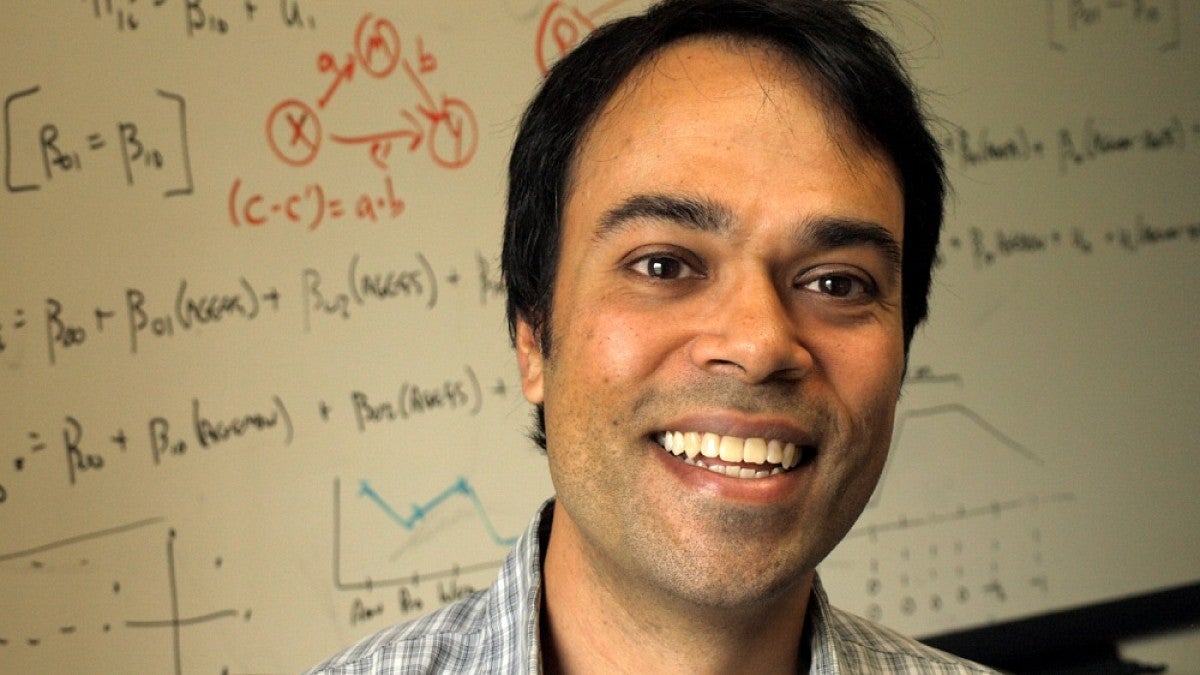In 2011, researchers began to redo famous psychological experiments in their own labs. The shocking result: Over and over, the replicated experiments failed to reproduce the well-known original findings.
Then, Cornell psychologist Daryl Bem published a paper that appeared to show real evidence for precognition — the ability to predict the future — in humans. He successfully replicated the experiment seven of eight times, always using large samples sizes and conventional statistical analyses.
Sanjay Srivastava, a UO associate professor of psychology, recently spoke with Live Science about the flaws in psychology that allowed this to happen.
“The paper appeared to be following all the rules of science, and by doing so showed something that almost everybody thought was impossible,” he said. “And so when that happens you say, okay, either the impossible really isn't impossible, like maybe extrasensory perception exists, or there's something about how we're doing science that makes it possible to prove impossible results.”
In psychology, data is considered statistically significant if it has less than a 5 percent chance of appearing at random. This is calculated with what is known as the “P-value.”
Problems arise when researchers compute more than one P-value per study. If dozens of variables — like age, gender, income and education level, for example — are examined, one of them might be statistically significant by chance.
Researchers can also affect their findings, purposefully or not, in another way: by slowly adding subjects to their studies until the results they want appear.
“It used to be common practice to look at the data collected during a study and then make decisions,” Srivastava said. “Like which variable is the key test of your hypothesis, or deciding how many subjects to collect.”
Srivastava supports one plan to fix the struggling science of psychology. He believes that scientists, before beginning an experiment, should record decisions like how many subjects they plan to include and what variables they plan to analyze.
“Preregistration means that before you collect data for a study, you write down a plan of what you're going to do,” Srivastava said. “You identify all the things you might have to make decisions about along the way, and you make these decisions in advance.”
The idea has received some pushback. Opponents argue that preregistration limits exploratory research and the ability of researchers to learn from their mistakes along the way.
For the full story, see “Psychologists Have a Plan to Fix the Broken Science of Psychology.”
Srivastava’s research focuses on how personality affects and is affected by the social environment.


